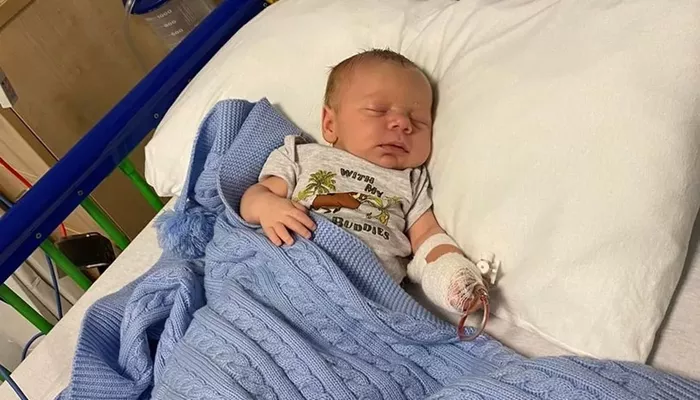A mother who saved her baby’s life when he suddenly stopped breathing is now campaigning to include infant CPR guidance in children’s health records.
Hayley Gardyj, from Melksham, Wiltshire, had to perform life-saving CPR on her eight-week-old son, Brodie, two years ago, when he stopped crying and became limp.
Now, as part of her campaign, the mother of three is urging for QR codes to be added to “red books” — personal child health records (PCHRs). These codes would link parents to a video teaching infant CPR.
A spokesperson for the Royal College of Paediatrics and Child Health (RCPCH) confirmed that Gardyj’s proposal had been passed on to the chair of the PCHR committee for consideration.
A Terrifying Moment
Brodie, who was born prematurely and spent six weeks in the neonatal intensive care unit at the Royal United Hospital (RUH) in Bath, had been in the back of his mother’s car when he started crying in a “forceful, painful” way.
“I tried to settle him by shaking and rocking him, but he just got worse,” Gardyj recalled. “I moved him out of the car and into the shade, and then he stopped. He stopped crying.”
Panicked, Gardyj rushed to a nearby vet’s office and began CPR, which she had learned on a paediatric first aid course.
“I gave him two rescue breaths, then started chest compressions. I must have done about 10 or 15, but nothing was happening,” she said. “His life flashed before me, but not just his. I thought about my other two children, too, and how they would cope if I lost him.”
With help from a vet, Gardyj managed to revive Brodie’s heartbeat before emergency services arrived. Brodie was later transferred to the RUH, where medics discovered he had suffered a collapsed lung due to a viral infection.
Campaign for CPR Education
After the frightening incident, Gardyj began to explore what information was available to new parents about CPR. The red book, which is provided to parents at a child’s birth, tracks a child’s health and development but does not include any CPR guidance.
“Parents sit with their babies, flipping through the red book, but there’s nothing in it about CPR,” Gardyj said.
She now hopes to change this by linking a British Red Cross CPR training video to a QR code that could be printed in the red books. The content of the red book is determined by the RCPCH, which reviews user requests and policy changes.
A spokesperson from the RCPCH said, “The committee is open to considering all suggestions for content, so Hayley’s campaign has been passed on to the chair of the committee.”
A Legal Requirement?
Gardyj is also calling for it to be made a legal requirement for all new parents to undergo CPR training.
“I won’t stop until every parent is trained,” she said. “It’s scary, but knowing what to do could save a life.”
Related Topics:


